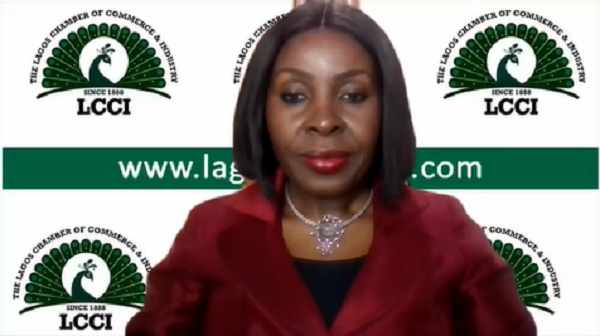The Lagos Chamber of Commerce and Industry (LCCI) has urged the Federal Government and Nigeria Customs Service (NCS) to suspend enforcement of the newly introduced four per cent processing charge.
Director General, LCCI, Chinyere Almona, made the call on Thursday in Lagos, in a statement.
She expressed concerns over the abrupt implementation of the processing charge, which took effect on Feb. 4.
Almona urged government and the customs service to engage in a structured sensitisation process to ensure stakeholders were adequately informed and prepared before its implementation.
She noted that while the charge was backed by the provisions of the Nigeria Customs Service Act 2023, Section 18, the LCCI was troubled by the manner of its sudden implementation.
The LCCI director-general pointed out that Section 23 of the same Act clearly mandates public notification and stakeholder engagement before the introduction of new charges.
“Unfortunately, the business community, including importers, exporters, freight forwarders, and clearing agents, were not given any prior notice or opportunity to prepare for this additional financial burden.
“Beyond the absence of consultation, the chamber wishes to have all government agencies concerned, to be sensitive to any additional cost burden on businesses and regulations.
“Currently, businesses grapple with various levies, taxes, and charges and were also faced with other policy cost implications like high interest rate, increasing cost of operations and others.
“This lack of consultation and sensitisation contradicts international best practices, which require trade-related policies to be implemented through transparent and inclusive procedures,” she said.
Almona added that the sudden enforcement of the charge was already disrupting business operations, increasing transaction costs, and causing uncertainty in the trading environment.
She said that its sudden implementation risked causing congestion at the ports, as many traders and clearing agents might hesitate to process shipments, leading to delays and possible disruptions in the supply chain.
The director-general noted that such outcome would ultimately hurt revenue generation for government and impact the overall ease of doing business in Nigeria.
She further called for more efficiency in port operations to ease the import and export of goods, reduce corruptive tendencies, and take trade facilitation as equally important as revenue generation.









